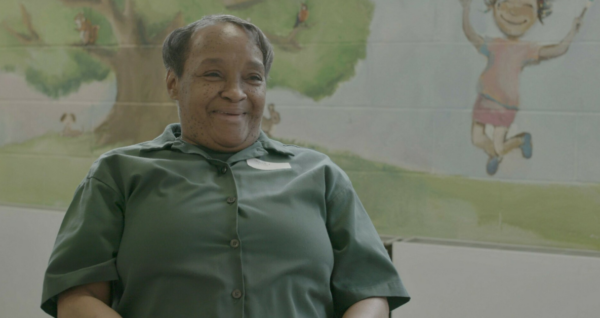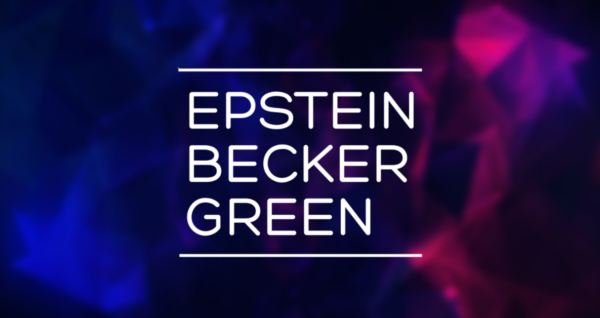A spotlight on Sanctuary Pro Bono Partner Latham & Watkins for their team’s outstanding work in assisting a domestic violence survivor in a successful clemency application.
Sanctuary for Families’ Pro Bono Project has the honor of working with hundreds of extremely dedicated and expert pro bono attorneys per year. As part of our new Pro Bono Spotlight, we’ll be highlighting some of the great work done by Sanctuary pro bono attorneys!
*Please note that this blog contains descriptions of physical and sexual abuse that could be triggering*
All-Women Latham Team Assists Domestic Violence Survivor in Successful Clemency Application
2022 didn’t end before delivering one last piece of outstanding, long-awaited news: after over 10 years of incarceration, domestic violence survivor Jacqueline Smalls had been granted clemency by Governor Kathy Hochul and would be heading home at last, along with twelve other incarcerated individuals.
During their two-year relationship, Jacqueline’s partner had subjected her to intense physical abuse—including strangulation, one of the highest lethality factors—and had been subsequently arrested several times. On the night of August 26, 2012, Jacqueline’s abuser entered her home in violation of two Orders of Protection she had obtained against him. During a domestic altercation, as her abuser moved to confront Jacqueline, she stabbed him once with a kitchen knife, killing him. Despite the obvious history of domestic violence, trauma, and clear danger to Jacqueline that evening, prosecutors from the Schenectady County District Attorney’s office refused to consider the history of domestic violence and charged her with second-degree murder. Jacqueline ultimately entered a guilty plea to a lesser charge of first-degree manslaughter and received a 15-year sentence.
Sanctuary attorneys first met Jacqueline in 2019 after she had already been incarcerated for several years. Sanctuary identified Jacqueline as an ideal candidate for the then-newly enacted Domestic Violence Survivors Justice Act (DVSJA) and turned to Latham & Watkins LLP, a longtime pro bono partner and champion of survivors of gender-based violence, to work with Jacqueline on a DVSJA re-sentencing motion to reduce her sentence, which would likely result in her release for time served under the more favorable DVSJA sentencing guidelines. Associates Brittany Ehardt, Jaclyn Newman, Melange Gavin, and Wendy Gu, with supervision and strategic guidance from partner Jamie Wine, began strategizing at once. Though Jacqueline was clearly eligible for resentencing under the DVSJA, the District Attorney’s office indicated that it would oppose such a resentencing motion, which would have resulted in forcing Jacqueline to participate in a difficult and re-traumatizing re-sentencing hearing. The team pivoted to clemency instead, knowing they could always return to a DVSJA strategy if they needed to.
On December 21, 2022 Governor Hochul granted clemency to 13 individuals, including Jacqueline, who will be released and reunited with her family on January 19, 2023.
“I recall doing Jacqueline’s intake in Bedford Hills and being immediately horrified by all the ways in which our system failed to protect her from her abuser, and then unduly and harshly punished her when she tried to protect herself. I was ecstatic when Latham agreed to represent her and I am forever grateful for their tireless work over the last couple of years to free Jacqueline.”
Nicole Fidler
Director, Sanctuary for Families’ Pro Bono Program
We are overjoyed at Jacqueline’s clemency grant. We also believe that so many other incarcerated individuals deserve the same consideration from Governor Hochul. Given Governor Hochul’s previous pledge to increase the rates of clemency grants, we are hopeful that more incarcerated survivors will be granted clemency soon.
We sat down with Jaclyn Newman, Melange Gavin, Wendy Gu, and Brittany Ehardt to hear firsthand about their experience working with Jacqueline.
Why did you agree to represent Jacqueline?
Jaclyn: We originally took on this case thinking it was going to be a DVSJA case. We felt passionately about Jacqueline’s case and wanted to serve justice for her in light of the domestic abuse she had suffered, and saw this new statute as a potential avenue for her.
What was it like to build and maintain your relationship with your client?
Brittany: In a case like this, when you’re dealing with sensitive and delicate topics, having the opportunity to meet in person was really helpful. After meeting with Jacqueline in person, it was about keeping the lines of communication open, with frequent contact, which helped build a positive and trusting relationship. It was important to not only discuss her legal challenges, but also focus on the human side of things.
Melange: Especially when an individual is incarcerated, it’s easy to see them as just a name or a number. Once we started speaking regularly on the phone with Jacqueline and met her in person, it helped to develop our relationship with her. We all care for her on an individual and personal level.
How did you and Jacqueline cope with the inherent uncertainty of a clemency case? Did this create any unusual obstacles?
Jaclyn: It was a rollercoaster! We were faced with the difficult choice of taking a risk with the uncertainty surrounding a clemency application, or continuing with a DVSJA resentencing application. In many ways, the DVSJA re-sentencing application seemed to be the safer and more predictable option, because we knew Jacqueline had a strong case under the DVSJA and deserved to be resentenced and released. But when we learned that the DA wouldn’t oppose a clemency application, but would oppose a DVSJA application, we decided to pursue clemency first, given that the lack of opposition from the DA’s office provided us with a stronger clemency application. Additionally, we hoped to avoid re-traumatizing Jacqueline on the stand during her DVSJA hearing. We also knew that if clemency didn’t work out, we would go back to the DVSJA application as an alternative path to Jacqueline’s release.
Wendy: Throughout this process, Jacqueline kept such an open mind, and had faith in herself and us. It was a really strong motivator for the team, I think. She kept her head up and maintained hope and that kept the entire team going.
Did anything surprise you during this case?
Brittany: This case made me recognize that a lot of individuals lack a baseline understanding of domestic violence and trauma. Societally, with the way people think about these cases, we have a long way to go. While it was challenging to educate individuals about the impact of domestic violence while conducting the case, it was also positive to see that the education made a difference in the outcome for our client.
What is one of the biggest things you learned from working with Jacqueline?
Melange: This was the most one-on-one contact with an individual client that I’ve had. The client-facing experience is very different with an incarcerated client. Getting to know Jacqueline, I found myself connecting with her on a deeper level. And of course, when it’s someone’s life on the line, it makes the stakes so much higher.
What did you find most gratifying about the experience?
Jaclyn: I think for me it was when Jacqueline’s family members started crying tears of happiness on the phone when they heard the news about her clemency grant.
Brittany: Also, as Jacqueline plans her reentry, it’s gratifying to think about what her life can be like now as she rejoins her community and her family. When we started working with her this possibility seemed so distant, so knowing that it’s within reach now is incredible.
Anything else we should have asked you but didn’t? Anything you want to add?
Brittany: It takes a village. Of course, we’re proud of the work we put into this case, but it took several groups coming together. Partnering with Sanctuary and having resources and guidance available to us was so helpful. I think it’s a good lesson to anyone, no matter what you’re doing – it’s OK to ask for help from people who have experience in a certain field. It can only make the situation better.
Congratulations to Jacqueline, Melange, Brittany, Jaclyn, and Wendy!
Join the team from Latham & Watkins in standing with our clients. Your gift supports Sanctuary’s life-saving work with survivors of gender violence.



